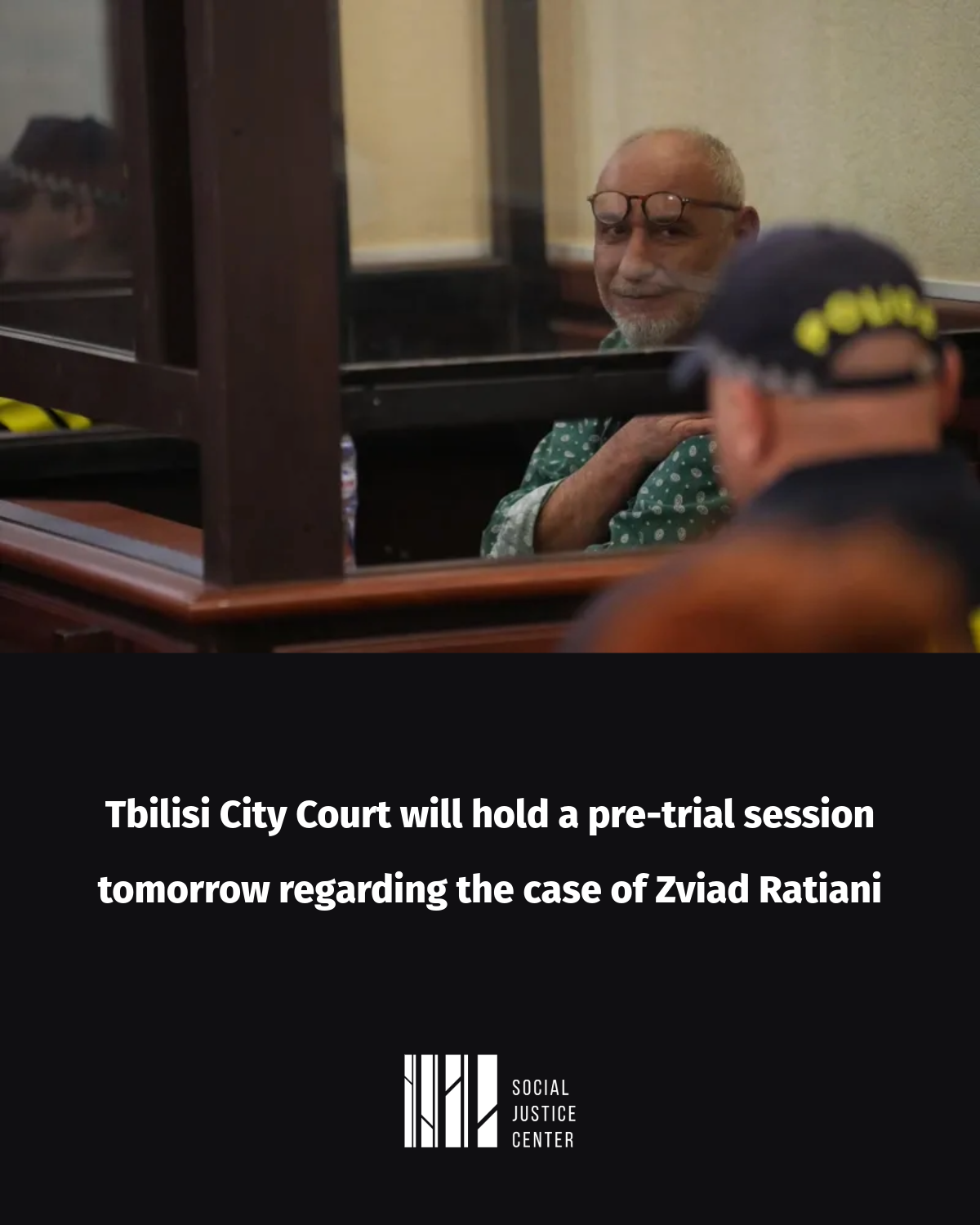საერთო ცხელი ხაზი +995 577 07 05 63


On August 14, 2025, at 11:00 a.m., Tbilisi City Court will hold a pre-trial hearing in the criminal case against renowned contemporary Georgian poet Zviad Ratiani. Zviad Ratiani’s interests in court are represented by the Social Justice Center.
The court will examine the admissibility of the evidence obtained by the parties, as well as the justification of upholding the strictest preventive measure, detention, imposed on Zviad Ratiani following his arrest on June 23.
On June 25, Tbilisi City Court Judge Arsen Kalatozishvili ordered the pre-trial detention of Zviad Ratiani on the grounds that there was a risk of the defendant committing a new crime and destroying evidence.
The arrest of Zviad Ratiani is yet another clear example of the punitive use of preventive measures, as the application of bail would have fully ensured the prevention of any unlawful conduct by the defendant. Tomorrow, lawyers of the Social Justice Center will once again petition the court for Ratiani’s release from custody and the application of bail as a preventive measure.
Among other things, the prosecution justified the detention by referencing the fact that Zviad Ratiani had blocked Rustaveli Avenue 19 times, a circumstance that is unrelated to the current criminal case. Additionally, the allegations regarding the potential for witness manipulation or evidence destruction are unfounded, as the primary evidence in this case has already been submitted to the court. The case file contains a video recording of the incident, and the police officers (whom the prosecution claimed were susceptible to influence) have already been questioned. Consequently, the prosecutor should have specified the additional evidence that could have been jeopardized if a non-custodial measure (bail) had been imposed on Ratiani. Such generic reasoning for detention contradicts the principle of imprisonment as a measure of last resort and effectively enables the use of pre-trial detention in any politically sensitive case.
Zviad Ratiani has been prosecuted under Article 353¹(1)(e) of the Criminal Code of Georgia for allegedly slapping a police officer. This offense is punishable by 4 to 7 years of imprisonment. We find the act's classification as an "attack on a police officer" to be blatantly unfounded. Ratiani's actions did not reach the level of intensity that would necessitate criminal punishment, particularly in light of the fact that criminal law mechanisms must be employed as a last resort. Additionally, the elements of the offense outlined in this article are not formulated with the required clarity, which increases the likelihood of inconsistent interpretation and the possibility of bad-faith application in practice.
Zviad Ratiani has been subjected to police harassment and assault on numerous occasions over the past few years. His first arrest occurred on December 23, 2017, when officers made ironic and inappropriate remarks about his attire. He was verbally and physically harassed prior to being transported to the station. Subsequently, the Public Broadcaster aired footage of Ratiani being physically assaulted while in custody in an attempt to undermine his credibility.
Zviad Ratiani was once again the target of law enforcement during the protests that commenced on November 28, 2024. On the night of November 29, he was arrested on administrative charges of disobedience to police and petty hooliganism in the vicinity of the Parliament, during a massive demonstration. Officers forcibly passed the poet through a police cordon and subjected him to severe beatings during his arrest. Consequently, Ratiani sustained fractures to his fifth vertebra, nasal bone, and septum, as well as multiple hematomas and injuries of varying severity to his head and body. Two weeks later, on December 12, while heading to another protest, Ratiani was physically assaulted near his home by so-called “titushki”, men concealed in black clothes.
The Social Justice Center will continue to defend Zviad Ratiani’s interests and will keep the public regularly informed on the course of the trial.
The website accessibility instruction